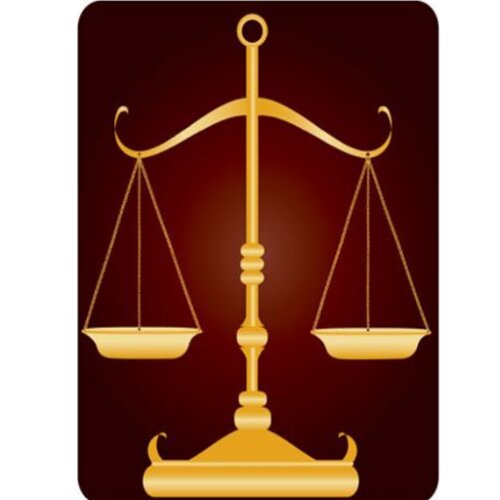Best Elder Law Lawyers in Indonesia
Share your needs with us, get contacted by law firms.
Free. Takes 2 min.
Or refine your search by selecting a city:
List of the best lawyers in Indonesia

Jiwangga Law Office | Lawyer Surabaya | Advokat Surabaya | Pengacara Surabaya
30 minutes Free ConsultationAbout Elder Law in Indonesia
Elder Law in Indonesia encompasses various legal areas that affect older individuals, such as estate planning, health care, guardianship, retirement, and end-of-life decisions. As Indonesia's population ages, legal issues specific to older adults have become increasingly prominent. Elder Law aims to protect the rights and well-being of the elderly, ensuring they receive the necessary care and financial support to live comfortably.
Why You May Need a Lawyer
Engaging a lawyer specialized in Elder Law can be crucial in several situations:
- Estate Planning: Lawyers can help draft wills, trusts, and other legal documents to ensure your assets are distributed according to your wishes.
- Guardianship: If you need to establish or contest guardianship over an elderly individual, professional legal assistance may be required.
- Financial Exploitation: Lawyers can assist in cases where an elderly individual is financially exploited by relatives or caregivers.
- Health Care Decisions: Legal guidance can help in setting up health care directives or powers of attorney for medical decision-making.
- Long-term Care Planning: Assistance may be required to navigate the complexities of long-term care options and funding sources.
Local Laws Overview
The legal framework in Indonesia pertinent to Elder Law includes regulations regarding inheritance, elder care, and social security. Key aspects include:
- Inheritance Laws: Governed by the Indonesian Civil Code and Islamic Law principles for Muslims, detailing how assets are passed on after death.
- Social Security for the Elderly: Indonesia provides governmental support through programs like the Jaminan Kesehatan Nasional (JKN) for healthcare services.
- Legal Capacity: Laws addressing the capacity to make decisions and the appointment of legal guardians when necessary.
- Protection Against Abuse: Laws and regulations that offer protection against elder abuse, including physical, emotional, and financial abuse.
Frequently Asked Questions
What is a will, and why should I have one?
A will is a legal document that outlines how your assets should be distributed after your death. It helps ensure that your wishes are carried out and can reduce conflicts among heirs.
How can I protect my elderly relative from financial exploitation?
Appointing a trustworthy power of attorney or establishing a conservatorship with legal oversight can help protect vulnerable elders from financial abuse.
What are powers of attorney, and why are they important?
Powers of attorney are legal documents that allow someone to act on your behalf for financial or medical decisions. They ensure decisions are made according to your preferences if you become incapacitated.
How does one contest a will in Indonesia?
Contesting a will typically involves legal proceedings in court, where you need to prove grounds like undue influence, fraud, or lack of testamentary capacity. A lawyer can provide guidance.
What kind of healthcare services are available for seniors under JKN?
JKN covers various healthcare services for seniors, including primary care, hospital services, and some specialized treatments. However, the scope of coverage may vary, requiring additional private insurance.
What legal actions can be taken in case of elder abuse in Indonesia?
Elder abuse can be reported to local authorities and may involve criminal prosecution, protective orders, or civil legal action to secure the victim's safety and rights.
What should I do if my elderly parent becomes mentally incapacitated?
If no prior arrangements like a power of attorney are in place, you may need to apply for legal guardianship through the court to make decisions on their behalf legally.
Is a trust an effective tool for managing elder assets?
A trust can be an effective estate planning tool to manage and protect assets, providing clear instructions for managing elder assets during their lifetime and distribution after death.
How can I ensure my medical wishes are respected if I become incapacitated?
Advance healthcare directives and appointing a healthcare power of attorney allow you to specify your medical treatment preferences and designate someone to make decisions on your behalf.
Can an elder's rights to autonomy be legally challenged?
Yes, if an elder is deemed unable to make safe or reasonable decisions, a court may appoint a guardian to make decisions for their welfare, though this can be challenged in court.
Additional Resources
Consider contacting the following resources for further assistance:
- Ministry of Social Affairs: Provides information on social services and benefits for the elderly.
- National Commission on Elderly: Advocates for elder rights and provides resources on elder care and legal issues.
- Indonesian Bar Association: Can help locate qualified Elder Law attorneys and offer legal assistance programs.
Next Steps
If you need legal assistance in Elder Law, consider taking the following actions:
- Consult with a Lawyer: Schedule a consultation with a lawyer experienced in Elder Law to discuss your specific situation and receive tailored advice.
- Gather Relevant Documents: Collect necessary documents such as wills, powers of attorney, medical directives, and any correspondence related to your legal concerns.
- Research Your Rights and Options: Familiarize yourself with your legal rights and the options available to you under Indonesian law to make informed decisions.
- Reach Out to Support Networks: Seek support from family members, social workers, or elder advocacy groups to guide you through any legal processes.
Lawzana helps you find the best lawyers and law firms in Indonesia through a curated and pre-screened list of qualified legal professionals. Our platform offers rankings and detailed profiles of attorneys and law firms, allowing you to compare based on practice areas, including Elder Law, experience, and client feedback.
Each profile includes a description of the firm's areas of practice, client reviews, team members and partners, year of establishment, spoken languages, office locations, contact information, social media presence, and any published articles or resources. Most firms on our platform speak English and are experienced in both local and international legal matters.
Get a quote from top-rated law firms in Indonesia — quickly, securely, and without unnecessary hassle.
Disclaimer:
The information provided on this page is for general informational purposes only and does not constitute legal advice. While we strive to ensure the accuracy and relevance of the content, legal information may change over time, and interpretations of the law can vary. You should always consult with a qualified legal professional for advice specific to your situation.
We disclaim all liability for actions taken or not taken based on the content of this page. If you believe any information is incorrect or outdated, please contact us, and we will review and update it where appropriate.
Browse elder law law firms by city in Indonesia
Refine your search by selecting a city.















